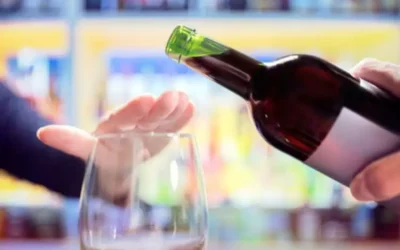Content
And if you can’t think of what your interests are, right away, start following someone else’s passion. Take an interest in other people and what they love. My husband wants to drive cross country with my son, going from minor league baseball games to minor league baseball games. In the past, I never would have wanted to give myself assignments. If someone else loves hiking, ask them to take you on a hike.

Alcohol and drugs directly and negatively affect the parts of the brain that are responsible for decision-making and impulse control. “A lot of the people I see who are drinking heavily are also eating crap diets.” He then went on to describe how lifestyles that foster addiction often come with other destructive facets. Not only drinking because of boredom is boredom a really uncomfortable emotion but we almost feel guilty about. We feel bad about being bored because if you compare it to other uncomfortable emotions, let’s say pain or nausea or disgust, we feel like boredom shouldn’t be a problem. If you’re in pain it is only natural to want to relieve or stop the physical pain.
Anorexia Long Term Side Effects
But they are smart and interesting, and do activities that aren’t centered around alcohol. There is a quiet time between drinking and your life after drinking. You sleep a lot and you feel https://ecosoberhouse.com/article/alcohol-neuropathy-symptoms-and-treatment/ a little down your body and your mind and your emotions are adjusting to life without alcohol. But it will lift little by little and new interests and joy will come into the picture.
Welcome to the Hello Someday Podcast, the podcast for busy women who are ready to drink less and live more. I’m Casey McGuire Davidson, ex-red wine girl turned life coach helping women create lives they love without alcohol. But it wasn’t that long ago that I was anxious, overwhelmed, and drinking a bottle of wine and night to unwind. I thought that wine was the glue, holding my life together, helping me cope with my kids, my stressful job and my busy life. I didn’t realize that my love affair with drinking was making me more anxious and less able to manage my responsibilities. It’s a real issue that is leading people from all walks of life into potential substance use disorders.
How Do You Improve Your Self-Awareness in Addiction Recovery?
Making time for activities that stimulate the mind outside of life’s everyday activities is healthy for the body and mind, especially when avoiding addiction and relapse. Most people who are in recovery report that their greatest fear is facing the boredom they once felt while they were still using. Unfortunately, boredom is reported as one of the biggest reasons many people who are in recovery experience relapse.
Is it OK to have a drink every night?
Should I be concerned? ANSWER: Occasional beer or wine with dinner, or a drink in the evening, is not a health problem for most people. When drinking becomes a daily activity, though, it may represent progression of your consumption and place you at increased health risks.
We were all just sitting around and getting drunk, perfectly content to not really do anything together. I have gone to bars with people I genuinely like as a sober person, and I don’t stay for longer than an hour or two if nothing is happening. My friends and I got together for happy hours after work. During the day, there were all-inclusive brunches.
Why Comparing Yourself to Others in Recovery is a Losing Game
The most important thing is to change your perception of fun. If something seems fun only when you are a bit drunk, then it’s not really fun at all and you should stop doing it. For me, that included days at the horse racing, stag weekends in Prague and visits to Winter Wonderland. For you, it might be dreary after-work drinks or that book club that just seems to be a cover for unbridled midweek boozing. But you will be amazed by how many things that you have spent time and money on for years are, in the cold light of sobriety, rubbish. A professional can give you information about drinking, risk factors for substance abuse, and strategies for managing or quitting alcohol.
Why do I drink when I’m stressed?
Why do I want to drink when I'm stressed? Alcohol is a tempting coping skill during periods of high stress. It has the power to calm you down and make you feel more relaxed in the moment. Alcohol is classified as a depressant because it slows down your brain and changes the way you think, feel, and act.
When you get sober, you realize there is an entire daytime pulse in your city or town that you never really felt before. Things that people do during that day that don’t involve recovering or boozy brunch. Exercise is critically important in early sobriety and for ongoing mental health and wellness. It’s a great way to boost dopamine and endorphin levels naturally. Before I started drinking too much, I loved to write.
Alcoholics Anonymous is free and available all over the country. Despite its dreary church hall image, I found the atmosphere in most meetings to be surprisingly convivial and often hilariously funny. But if you don’t fancy AA there are alternatives such as Smart Recovery and various group resources offered by the NHS.
- Downplaying the seriousness of alcohol misuse and addiction can have impactful ramifications.
- The good news is that your brain can adjust and restore balance to your internal world.
- I certainly would have if I’d read this article five years ago.
- When you’re bored, chores are probably the last thing you want to do.













